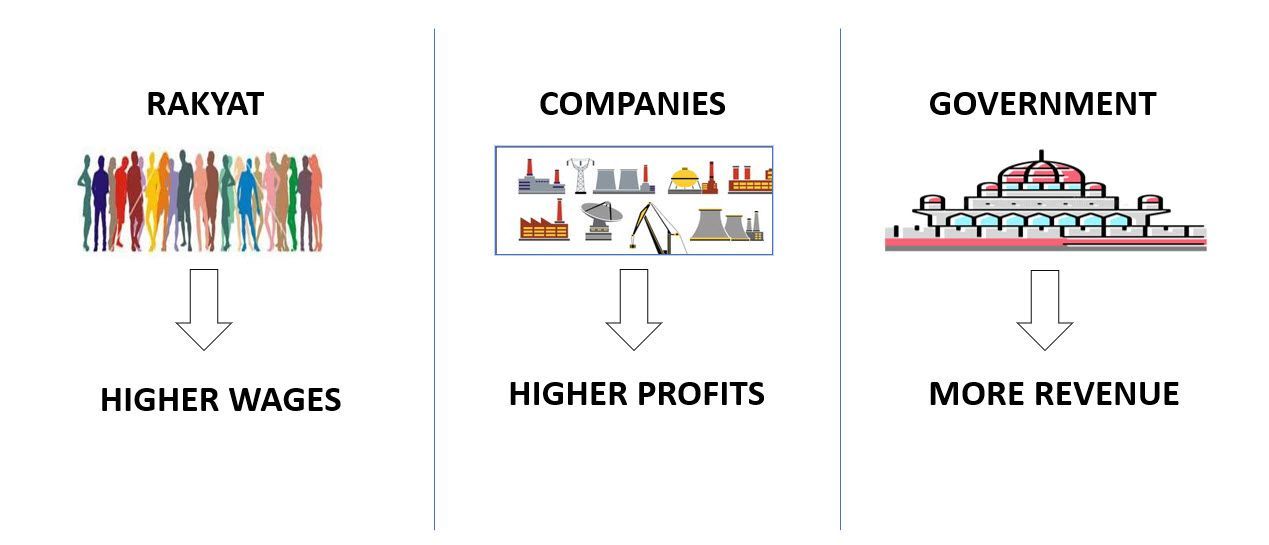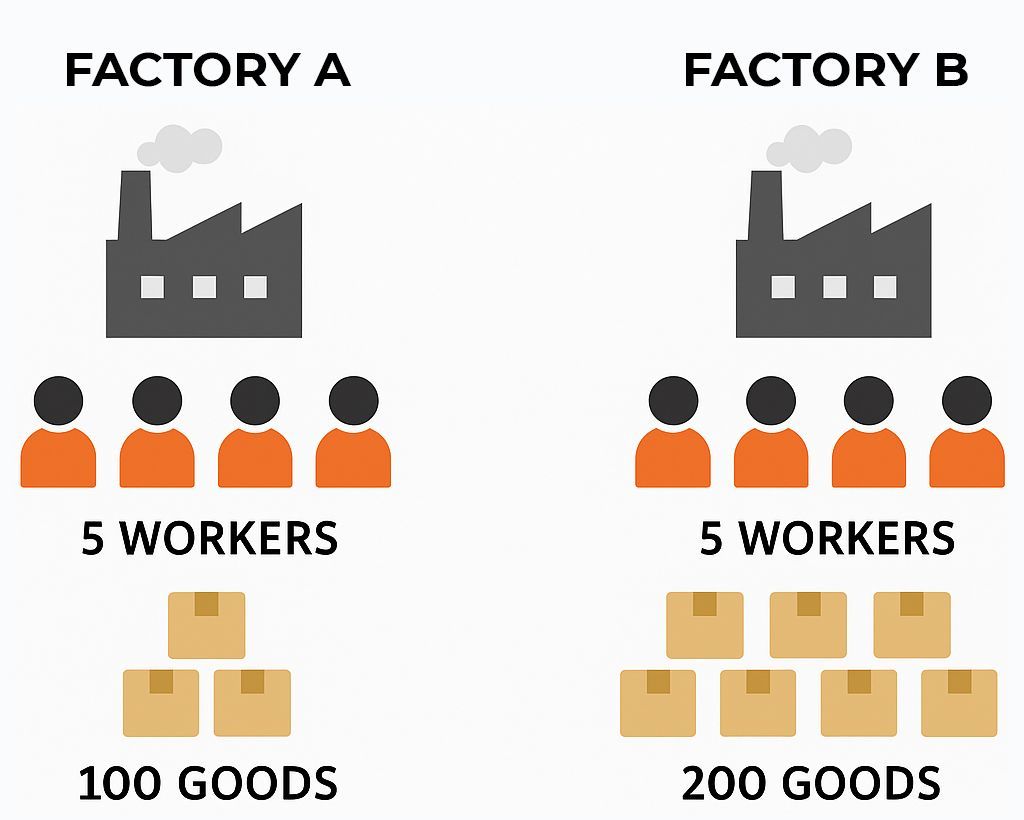What is Productivity
Productivity is a measure of how efficiently resources – such as labour, capital, land, or technology – are used to produce output (goods and services).
In simple terms, productivity means producing more with the same resources, or producing the same amount with fewer resources.
Labour Productivity Formula
Labour productivity is often measured using a simple formula:
Labour Productivity = Output / Input
For example, if a company can produce more goods with the same number of workers, this means its productivity has increased.
Why is Productivity Important?
Productivity brings benefits to all stakeholders in the economy:
- People (Workers): gain higher wages and improved quality of life.
- Companies (Businesses): enjoy higher profits and stronger competitiveness.
- Government: collects higher revenue to finance national development and public welfare.

A Simple Illustration
Imagine two factories with the same number of workers:
- Factory A produces 100 units per month.
- Factory B, with better methods and technology, produces 200 units per month.
- Factory B is more productive because it generates more output with the same resources.


